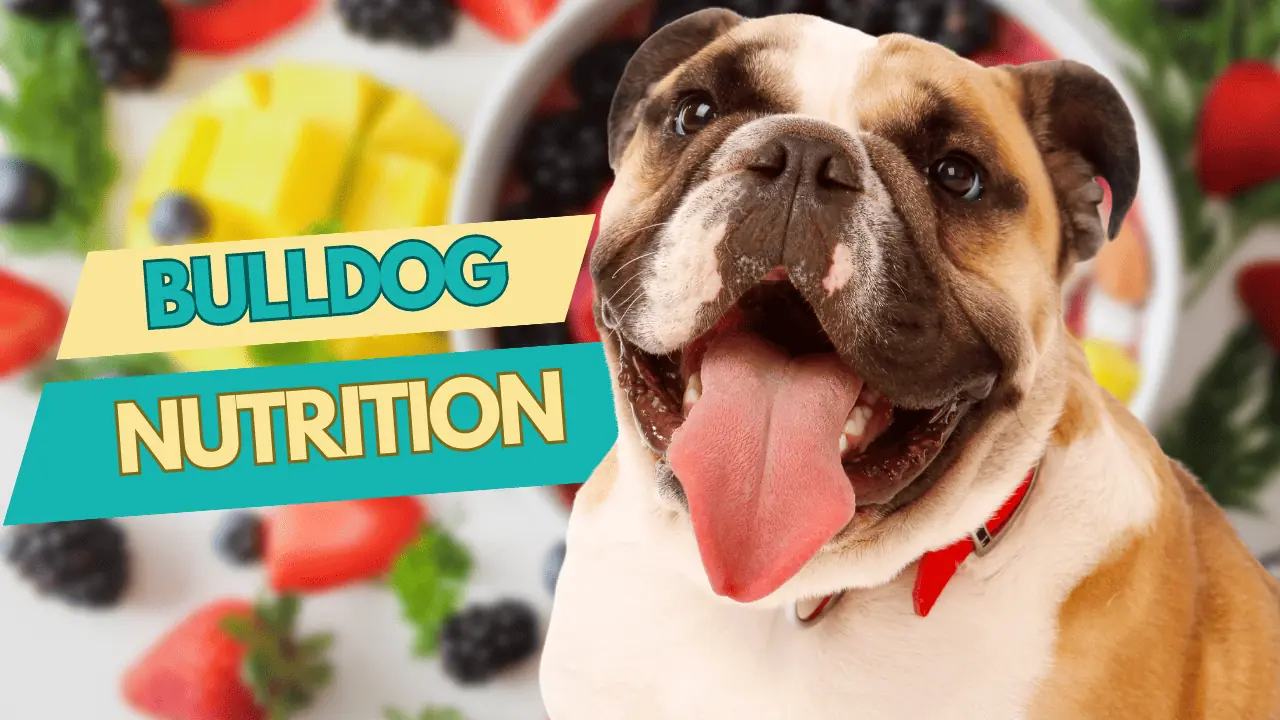Bulldogs are a unique breed and require a specific diet to maintain optimal health. A proper diet can prevent health problems and increase your bulldog’s life expectancy. In this blog, we’ll explore the requirements, things to avoid, and recommended nutritional supplements for bulldogs.
Bulldog Nutrition Requirements
Bulldogs are prone to obesity, which can lead to joint problems, heart disease, and other health issues. Therefore, it’s important to monitor their calorie intake and ensure they receive the right amount of nutrients.
A balanced diet should include:
High-quality protein: Bulldogs require protein to maintain muscle mass and keep their coat healthy.
Healthy fats: Omega-3 and Omega-6 fatty acids are essential for healthy skin and coat.
Carbohydrates: Carbohydrates provide energy and fiber for proper digestion.
Vitamins and minerals: Bulldogs require a balanced amount of vitamins and minerals to maintain healthy bones and organs.
Things to Avoid in Bulldog Nutrition
Bulldogs have a sensitive digestive system, and certain foods can cause health problems. It’s important to avoid:
Grains: Bulldogs have a high risk of developing allergies to grains, which can cause skin irritations and digestive problems.
Sugary Treats: Bulldogs have a sweet tooth, but sugar can lead to obesity and dental problems.
Artificial Preservatives: Artificial preservatives can cause allergic reactions and digestive problems. I want to talk about this one a bit more because one very common preservative that is highly toxic is Xylitol. Xylitol is commonly found in store bought Peanut Butter, which, if your fur baby is anything like mine…it’s a household staple. It is so important that you read labels before buying or giving your pet anything bought from the grocery store.
If Xylitol is ingested, it can cause your dogs blood sugar to drop suddenly, possibly have seizures and in extreme cases can cause liver failure and possibly death. Symptoms of Xylitol poisoning include; panting, over heating, staggering, lethargy, lack of coordination, seizures and collapse. You can start noticing symptoms in as little as 30 minutes and can last as long as 12 hours, depending on how much was ingested.
If you suspect that your dog has ingested Xylitol do not try to induce vomiting or treat it at home. This is not a time to post in a social media dog group asking for advice. Seconds count. Immediately call your vet. If the vet is not available, find the closest emergency vet. You can also call the PetPoison Helpline which is a 24/7 poison control hotline for pets at 1-800-213-6680.
What supplements should i give my dog?
In some cases regular meals will not provide all of the nutrients your dog needs. In these cases there are nutritional supplements you can give them. Some of the most common supplements are:
Omega 3’s and 6’s: The 3’s will help to reduce inflammation causing arthritis and kidney disease as well as improve cognitive function! The 6’s can help with cell reproduction and growth, immune function and healthy skin and coat! Zesty Paws offers a convenient chew option so it’s like giving them a treat that’s extra healthy https://prf.hn/l/kxQMWmb
Glucosamine: is probably the most common supplement for dogs. It lubricates the joints, reduces inflammation, aides in alleviating the pain and really helps with mobility overall. If you notice that your dog is having difficulty sitting down or standing up, it may be time to introduce a supplement. We give ours Dasuquin https://prf.hn/l/oVwpZdW.
Fish Oil: is another popular supplement. The many benefits include; support for dry and flakey skin, heart health, arthritis just to name a few. The recommended dosage is 75/100 mg/kg of EPA and DHA daily. Zesty Paws is one that can help https://prf.hn/l/xnd4a9n
Probiotics: Probiotics can improve digestive health and boost the immune system. There are many different options on the market. The one our vet recommended and that we currently use is Proviable. Here’s the link if you want to check it out https://amzn.to/3LLPgUl
How Often should i feed my dog?
A proper feeding schedule can help maintain your bulldog’s weight and prevent health problems. It’s recommended to feed your bulldog two to three small meals per day instead of one large meal. This can help prevent bloating and other digestive issues.
Bulldog nutrition is essential for maintaining their health and happiness. A balanced diet, avoiding certain foods, and adding nutritional supplements can help prevent health problems and ensure your bulldog lives a long and healthy life. By following these tips, you can provide your bulldog with the best possible nutrition.
MUST READ: Why Do English Bulldogs Overheat Easily: Understanding The Reasons And Prevention Tips

